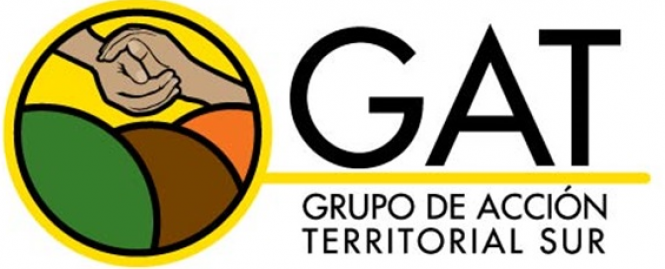Strategic Organization: GAT Sur

Costa Rica Territorial Action Group - Southern Area (GAT Sur)
In the Osa, Corredores, and Golfito cantons, around 70% of the population lives in rural areas, where livestock and agriculture (mainly rice and African oil palm) and are the primary sources of economic activity. These farmers are producing products destined for competitive national and international markets, with only a marginal amount of these goods being consumed locally. Meanwhile, local business must cope with competition from imports favored by a free market. The result in the region has been an imbalance of economic and organization activity wherein raw materials are sold and processed products with added value are purchased, leaving most of the profits in the hands of processors instead of local producers.
To help correct this economic and institutional imbalance, the Southern Area Territorial Action Group (GAT Sur) was created in 2007, with the help from the Rural Development Program (PDR) under the Ministry of Agriculture, as a participatory planning platform, giving voice and institutional structure to 47 diverse and affiliated organizations in the Osa, Corredores, and Golfito cantons. Governing GAT Sur are its own governing bodies, an Assembly and Management Board.
GAT Sur’s Mission is to “Promote the development of social organizations by means of the planning and development of comprehensive projects, through the facilitation and coordination of work with public and private institutions” within Osa, Corredores, and Golfito, which “have an organizational part in managing their own development, sustained by the diversification of a productive base, in a framework of respect and valuation of natural resources, [and] facilitated by the equal benefit of social, economic, and environmental opportunities for its inhabitants, with high family and moral values.”
During 2008, a Territorial Development Plan for 2008-2012 was developed for the Osa, Corredores, and Golfito cantons. The Junta de Andalucía (regional governing board in southern Spain) as well as the Southern Development Board (regional development board in southern Costa Rica; JUDESUR) assisted GAT Sur in the financing and development of 45 diverse projects, such as in social infrastructure, health, and human capital.
By the end of 2012, 80% of the original 45 projects had been successfully implemented at the cost of ₡ 484 million (~ $US 900,000). Additionally, in 2013 GAT Sur was awarded a second round of financial support from the Inter-American Institute for Cooperation on Agriculture (IICA in Spanish) and JUDESUR for its strong and favorable impact in public institutions the Osa, Corredores, and Golfito cantons over the 2007-2012 period.
Today, GAT Sur continues to successfully facilitate and lend crucial technical assistance to over 87 organizations throughout Osa, Corredores, and Golfito. It has also been able to positively influence public institutions such as The Rural Development Institute (INDER), the University of Costa Rica (UCR), the Federation of Southern Region Municipalities (FEDEMSUR), and the Southern Development Board (JUDESUR). Despite the breadth of projects that The GAT Sur implements, they all align with its core values, some of which are:
- Promote the sustainable development of the area.
- Encourage Civil society participation in decisions regarding the development of the area.
- Facilitate the coordination of human, institutional, material, and natural resources to improve the quality of life for those living in the region.
- Develop activities that strengthen the cultural identity of those living in the region;
- Create an inter-organizational network of that facilitates interaction between its members.
- Create a platform for the identification, promotion of ideas, and management of projects.
- Contribute to the creation of favorable conditions that promote the growth of human capital.
- Support social leaders in the area demand accountability from State institutions.
- Channel community requests to existing institutions with the goal of finding and coordinating complementary development programs.
- Allow for the exchange of development methods, experiences, and sociocultural activities between partners and those interested.
- Strengthen, enhance, and preserve natural and cultural resources of the region by locals.
- Integrate disadvantaged sections of society, such as teenagers, women, indigenous communities, handicapped, and immigrants.
- Actively work to overcome gender inequalities.
For more information, please visit <http://www.gatsur.com/bajo/>, or direct emails to <info@bajo.gatsur.com>.